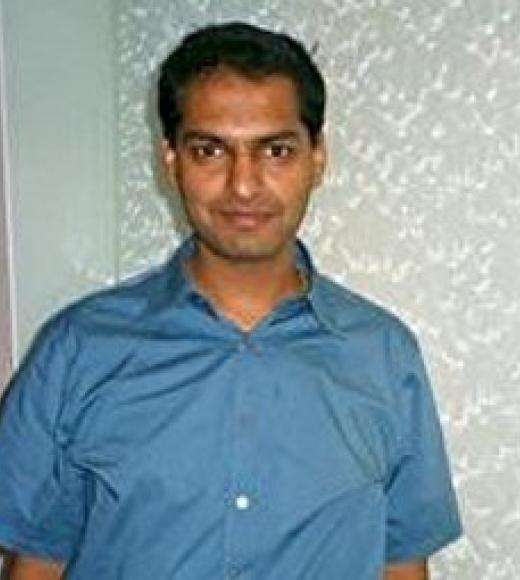
Position Title
Professor
Education
- Ph.D., Clinical Psychology, Northwestern University
- M.S., Clinical Psychology, Northwestern University
- B.A., Psychology, University of California, Berkeley
About
In addition to his academic appointment in Psychology, Charan Ranganath is an affiliated faculty with the UC Davis Center for Neuroscience, which seeks to understand the function of the human brain in health and in illness. He is also director of the Dynamic Memory Lab at UC Davis and is an affiliated faculty with the Center for Mind and Brain. His research involves the use of functional neuroimaging, electrophysiology and behavioral methods to study the neural basis of human memory and executive control. He previously served as editor for the Cognitive Neuroscience Section of the journal NeuroImage, and currently serves as an editor for the Journal of Neuroscience, which is the most influential academically edited journal in the field of neuroscience. Professor Ranganath has consulted for government and private funding agencies from several countries and has served on review panels for the National Institutes of Health and National Science Foundation.
Research Focus
Professor Ranganath's research concerns the neurocognitive structure of human memory and executive control. One set of studies currently underway concerns the relationship between short-term, or working memory, and long-term memory. Results from event-related fMRI studies conducted by Professor Ranganath suggest that overlapping regions of the prefrontal cortex and medial temporal lobes are active during both working memory and long-term memory tasks. This research suggests that a common neural system supports both of these types of memory. Currently, Professor Ranganath is investigating how different regions within the prefrontal cortex and medial temporal lobes contribute to working and long-term memory through additional fMRI studies of healthy young adults and behavioral testing of patients with focal brain damage. A second, related area of interest is the role of prefrontal cortex in the control and evaluation of information in memory. Finally, in collaboration with Andy Yonelinas, Professor Ranganath is investigating the roles of different medial temporal lobe regions in recognition memory processes. To address this issue, he is conducting parallel studies using event-related fMRI and event-related brain potentials in healthy young and older adults and amnesic patients with medial temporal lobe damage. In collaboration with another research group, he is also conducting studies to examine field potentials recorded directly from the human hippocampal formation in patients performing recognition memory tasks.
Lab
Dynamic Memory LabPublications
- Hsieh, L. T., Gruber, M. J., Jenkins, L. J., & Ranganath, C. (2014). Hippocampal activity patterns carry information about objects in temporal context. Neuron. 81(5):1165-78. PMID: 24607234
- Gruber, M. J., Gelman, B., & Ranganath, C. (2014). States of curiosity modulate hippocampus-dependent learning via the mesolimbic dopaminergic circuit. Neuron. 84(2): 486-496. PMID: 25284006
- Ranganath, C., & Ritchey, M. (2012). Two cortical systems for memory guided behaviour. Nature Reviews Neuroscience, 13: 713-726. PMID: 22992647
- Addante, R. J., Watrous, A. C., Yonelinas, A. P., Ekstrom, A. D., & Ranganath, C. (2011). Pre-stimulus theta oscillations predict source memory retrieval. Proceedings of the National Academy of Sciences, 108(26):10702-7.
- Axmacher, N., Cohen, M. S., Fell, J., Haupt, S., Elger, C. E., Schlaepfer, T. E., Lenartz, D., Sturm, V., & Ranganath, C. (2010). Intracranial EEG correlates of expectancy and memory formation in the human hippocampus and nucleus accumbens. Neuron, 65, 541–549.
Teaching
Professor Ranganath has taught courses in Human Learning, Fundamentals of Cognitive Neuroimaging and Current Research in Psychology.
Awards
Professor Ranganath’s work has been recognized with several awards, including a Guggenheim Fellowship, Leverhulme Trust Visiting Professorship at the University of Cambridge, the Laird Cermak Award from the Memory Disorders Research Society, the Samuel Sutton Award for Distinguished Scientific Contribution to Human ERPs and Cognition, the Chancellor’s Fellow award from UC Davis, and the Young Investigator Award from the Cognitive Neuroscience Society. In 2015, he was one of 11 researchers in the United States to receive a National Security Science and Engineering Faculty Fellowship. His research has been funded by grants from the Department of Defense, the National Institute of Mental Health (NIMH) and several private foundations.
